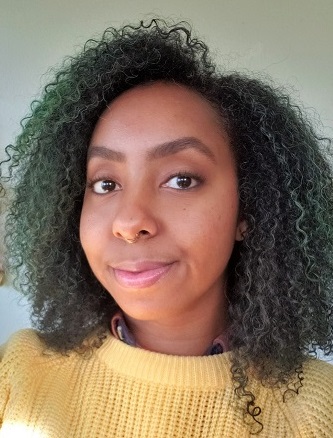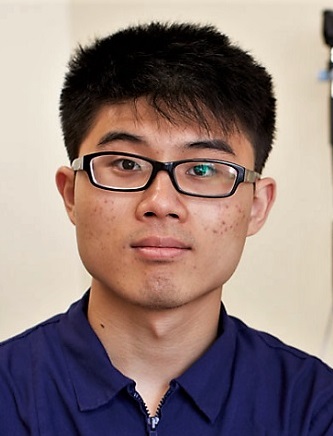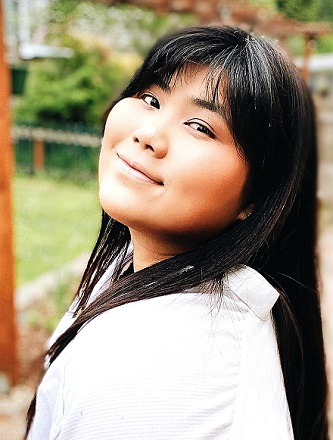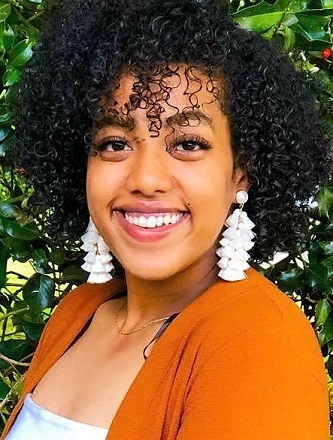By N.L. Sweeney
Every crisis needs a range of responders, and some of those on the frontlines during the coronavirus pandemic have been University of Washington Bothell students.
Aaron Davis, Addison Lin, Kathy Luangrath and Sesait Tekle are three students and one recent graduate of the School of Nursing & Health Studies. Davis, Luangrath and Tekle have been able to leverage their health studies background to benefit communities that are especially hard hit by the pandemic. Lin, a nurse, is on the front line every day.
Davis, who will graduate in 2021, offered a perspective that is shared by all four: “I am a firm believer that if you can do good, then you should do good. I am always actively looking for ways to help make someone’s day better. It is just who I am.”
Putting community first

Davis worked as an overnight program manager at a Mary’s Place emergency family shelter, playing an integral role in creating a new sense of normal in the shelter, delivering lunches, helping youth transition to online education and assisting youth program leaders. “We’ve had to change our operations during the pandemic, and we wanted people to feel supported,” said Davis. “We wanted to provide a sense of stability and normalcy as much as possible.”
Lin, a graduate student in the Master of Nursing program, has been distributing much-needed personal protective equipment through his involvement with WE CARE. The international group of Chinese Christians has donated more than 500,000 masks to health care workers throughout the United States. Lin helped facilitate communications, with his team helping to develop new online tools and standard operating procedures to more efficiently connect hospitals with donors of PPE.
Luangrath and Tekle, in a partnership between Affiliate Instructor Michelle Kleisath’s Global Health Practice course and the Rainier Valley Community Clinic, helped create a list of health care resources for underserved populations. The 23-page list includes essential information and contacts for organizations that could benefit people and communities such as new or expecting mothers, unsheltered individuals and families, immigrants and refugees.
But they didn’t stop there. “As daughters of immigrant parents who often had a difficult time navigating the system, we knew we wanted to do more to make our project as accessible, equitable and culturally sensitive as possible,” Tekle said. “So we expanded the accessibility of our lists even further, which resulted in using Google My Maps to help disperse the information in a way more people could access.”
Disparities and access

The issue of accessibility has been integral to the work of all four, and the Black Lives Matter movement has only reinforced for them the need to address disparities.
“Access to health care and health services intersects with broader issues of race, class and culture,” Lin said. “Social determinants of health such as socioeconomic status, neighborhood and health literacy play critical roles in how minorities are disproportionately impacted by the pandemic.”
For Luangrath and Tekle, this awareness of the people they were representing was what made the long hours and sleepless nights worth it. “We were able to keep going because we knew we were doing work that would help people who are so often overlooked,” said Tekle.
“The pandemic has given me insight into major gaps in health-related fields — especially when it comes to issues of access and quality of care for populations from lower socioeconomic backgrounds,” said Davis. “The pandemic has boldly highlighted many inequities in our society but has also lit a fire within me to work toward changing systems for the better.”
Beyond the pandemic


These four front-line workers are looking ahead at how to incorporate what they’ve learned into their careers. As Lin put it, “Health is more than just diagnosing and treating diseases.”
When he graduates in 2021, Lin plans to pursue work in the fields of public health, biostatistics and health policies. Luangrath, who graduated spring 2020, and Tekle, who will graduate in fall 2020, are both interested in social work and learning more about the ways health is connected to politics and shelter.
“Our work with the Rainier Valley Community Center has opened my eyes about the possibilities of what can be done in the field of social work,” said Luangrath. “The coronavirus pandemic has really illuminated areas of accessibility, such as access to high-speed Wi-Fi or even just the internet, that I otherwise might not have considered.”
Each of the four also emerged with a renewed sense of passion and intent.
“The work I’ve done has been empowering for me,” said Davis. “There is so much strength in our community, and I am excited to continue pushing conversations about equity and inclusion for underserved communities.”



